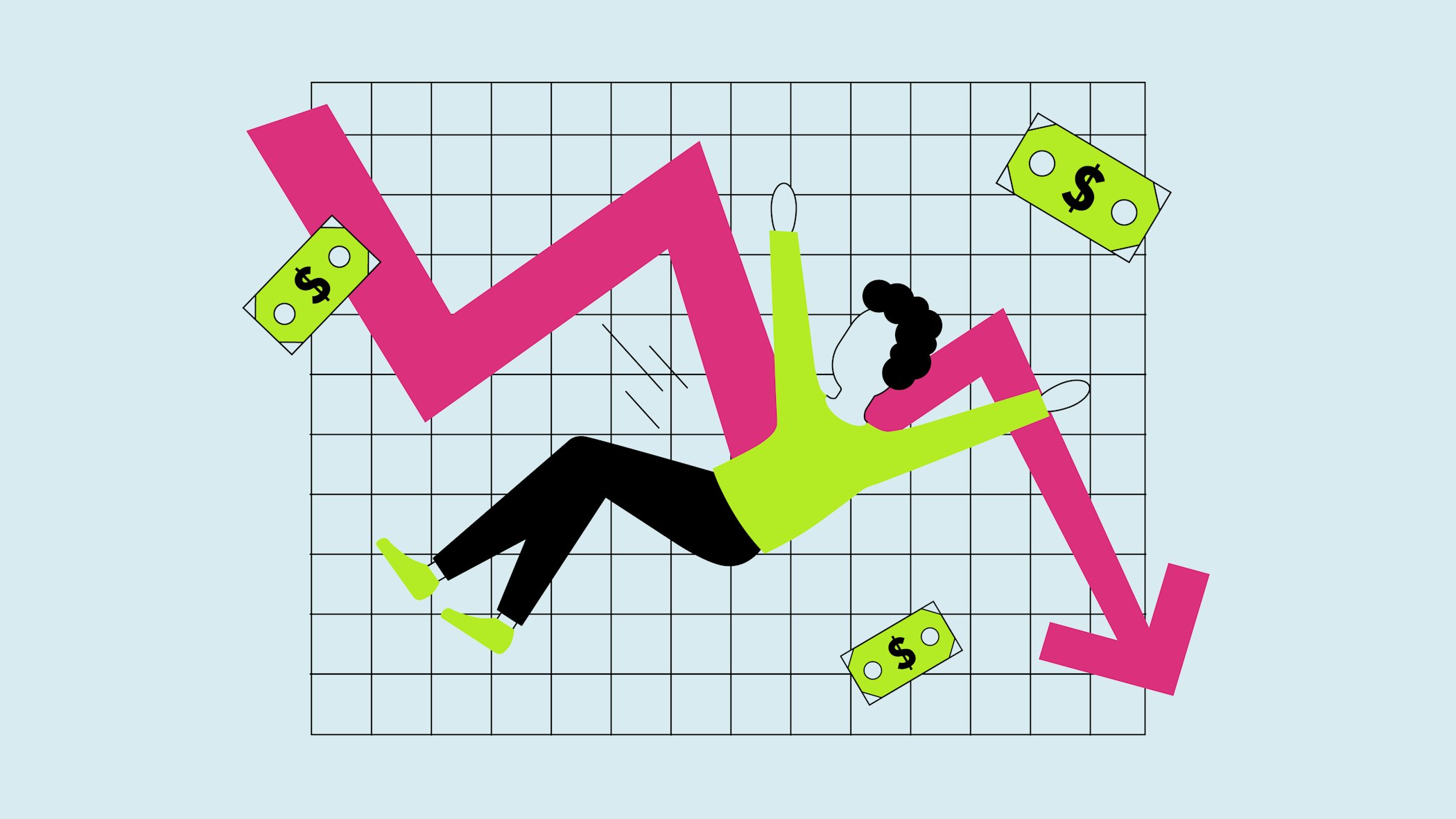
What is a recession?
A recession is a significant economic decline that has lasted for at least two consecutive quarters.
A recession usually results in a decline in a country’s GDP, decreased consumer spending and an increased unemployment rate.
Recessions are considered to be a corrective phase and part of the normal economic cycle.
What is a recession?
The standard definition of a recession is a significant but temporary economic decline that lasts for months or even years. Most experts agree that an economic decline can only be called a recession after at least two consecutive quarters of decreased economic activity. Though a recession can be short, lasting only a few months, it usually takes a couple of years before the economy reaches its former peak.
For the most part, recession is considered to be a normal phase within a country’s economic cycle. Usually, it acts as a sort of corrective phase, following times of increased inflation and unsustainable growth.
Still, the results of a recession can be devastating: a significant decrease in a country’s GDP, a reduction in consumer demand and consumer spending, and an increased unemployment rate. Some even see recessions as self-fulfilling, spurning on a vicious cycle that only makes the recession worse and when people hear grumblings about an upcoming recession they typically spend less. This decreased demand leads to employees being let go, which leads to even less consumer spending from the recently unemployed, and so on.
Recession vs. stagnation vs. depression
A recession mustn't be confused with a stagnation or a depression. Although a stagnation is also a period of little to no economic growth, it’s not as severe as a recession. A depression, on the other hand, is the most severe: the decline in GDP is much steeper, unemployment and job loss are much higher, and the period lasts years, not just months.
What causes a recession?
A recession can be the result of a variety of financial and psychological determinants. Usually a recession occurs when there’s a significant drop in consumer spending, like during an inflationary period, a shock to the supply chain, when an economic bubble bursts or during other economic crises. Since recessions act as a kind of leveller, they often follow times when consumer prices or consumer demand surged to uncontrollable heights. The Great Recession in 2008, for example, started in part because the overvalued housing bubble burst.
Can you predict a recession?
Though there are deciding factors that lead up to a recession, predicting when a recession might come is not a science that can be pinned down - but there can be some key indicators. One of them is an inverted yield curve, where long-term yields are lower than shorter-term ones. Economists also evaluate a variety of indices, like the ISM Purchasing Managers Index and the Conference Board Leading Economic Index, to forecast future economic activity.
How to handle a recession
Most governments have automatic practices in place that are meant to help stabilise the economy during a recession. This includes increased unemployment insurance and cuts to interest rates.
For investors, experts recommend staying resilient. The time ahead of a recession can be a good time to review investments and rebalance portfolios if need be. Experts also generally recommend maintaining an emergency fund and simply staying put to ride out the recession. Fortunately, recessions don’t last too long, and are usually followed by times of great economic growth.
DISCLAIMER
This article does not constitute investment advice, nor is it an offer or invitation to purchase any crypto assets.
This article is for general purposes of information only and no representation or warranty, either expressed or implied, is made as to, and no reliance should be placed on, the fairness, accuracy, completeness or correctness of this article or opinions contained herein.
Some statements contained in this article may be of future expectations that are based on our current views and assumptions and involve uncertainties that could cause actual results, performance or events which differ from those statements.
None of the Bitpanda GmbH nor any of its affiliates, advisors or representatives shall have any liability whatsoever arising in connection with this article.
Please note that an investment in crypto assets carries risks in addition to the opportunities described above.